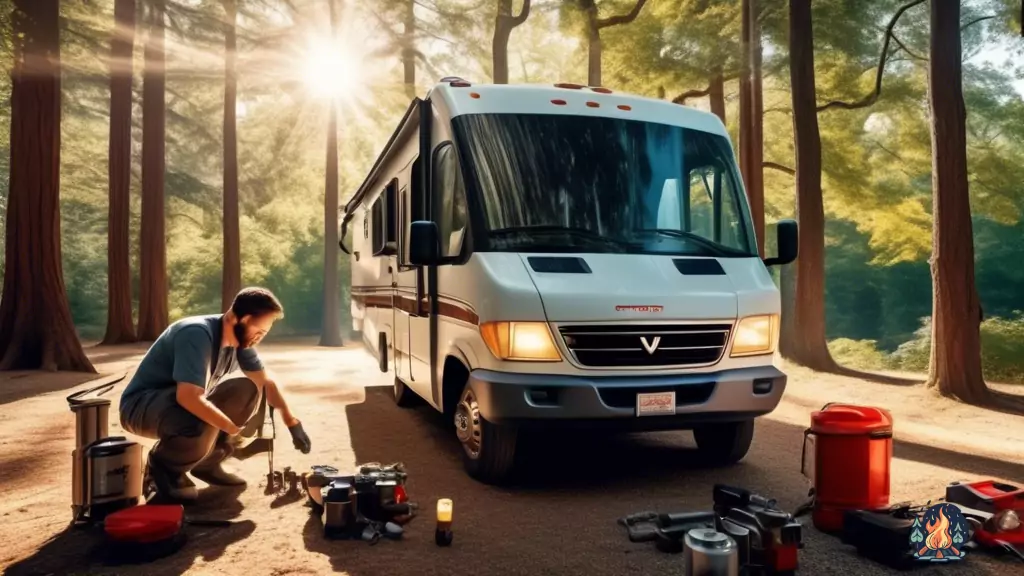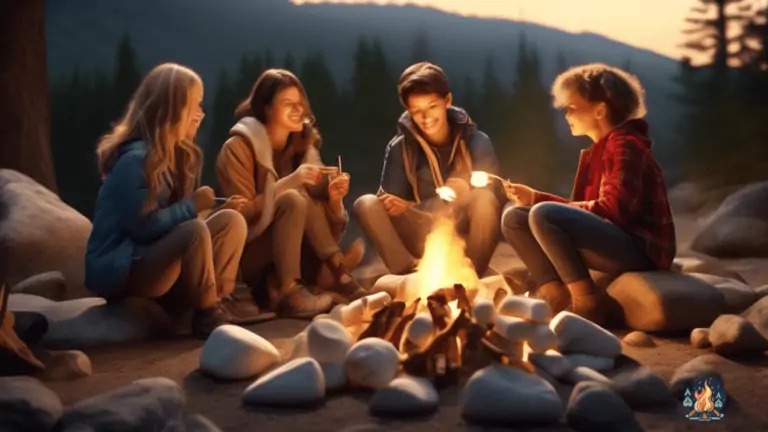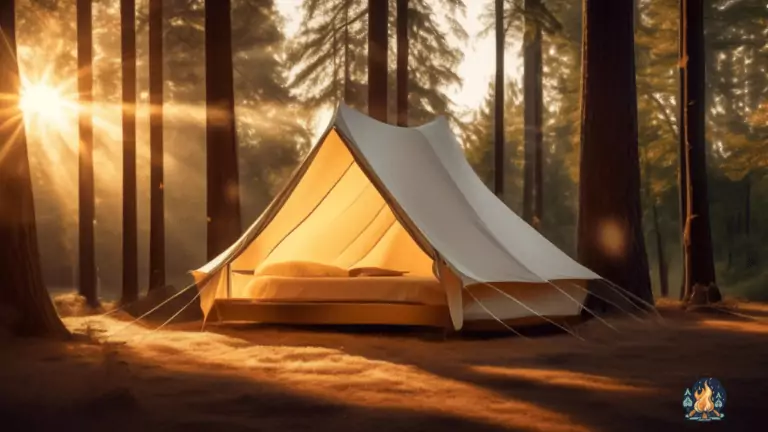Common Issues With RV Water Pumps And How To Troubleshoot
by Kevin Fairbanks • Updated: January 21, 2024
Having trouble with your RV water pump? Learn how to troubleshoot common issues and keep the water flowing smoothly in your RV adventure. Click here for expert tips on RV water pump troubleshooting!

Are you ready to hit the road in your trusty RV, but suddenly find yourself faced with a frustrating water pump problem? Don’t worry, you’re not alone! RV water pumps can be a bit finicky at times, but with a little troubleshooting, you’ll be back to enjoying a refreshing shower or washing dishes in no time.
In this article, we’ll dive into some common issues that RV owners encounter with their water pumps and provide you with some handy tips on how to troubleshoot them.
So, grab a cup of coffee, get comfortable in your favorite camping chair, and let’s get started on fixing those pesky pump problems.
After all, a happy camper is a camper with a working water pump!
No Water Flow: Causes and Solutions
Have you ever experienced a lack of water flow in your RV? Let’s explore some common causes and solutions for this frustrating issue.
First off, check to see if your water tank is empty. It may sound obvious, but sometimes we forget the basics in the midst of our RV adventures. So, if you’re not getting any water flow, make sure you didn’t accidentally drain your tank before hitting the road.
If that’s not the case, the next culprit could be a clogged water filter. Those pesky little particles can sneak their way into your pump and cause a blockage. So, try cleaning or replacing your water filter and see if that gets the water flowing again.
If the water is still refusing to flow, it’s time to check your pump’s wiring. Make sure all the connections are secure and there are no loose wires hanging around. Sometimes a simple jiggle or tightening of a connection can do the trick.
Now, if you’re still not having any luck, don’t fret. It’s possible that your pump may have simply given up the ghost. In that case, you’ll need to replace it. But hey, look at the bright side. You’ll get to brag to your fellow RV enthusiasts about how handy you are at fixing things. Plus, it’s an excuse to treat yourself to a shiny new water pump.
So, keep calm and remember, you’re just one pump away from a refreshing shower.
Low Water Pressure: Troubleshooting Tips
If you’re experiencing a lack of water pressure in your RV, congratulations – you’ve hit the jackpot! Just kidding, low water pressure can be a frustrating issue to deal with, but fear not, we’ve got some troubleshooting tips for you.
Here are a few things to check if you’re dealing with low water pressure:
- Check the water supply: Make sure that your RV is connected to a reliable water source. Sometimes, the issue may be with the campground’s water supply, so it’s worth checking if other campers are experiencing the same problem. If the problem is isolated to your RV, then you can move on to the next steps.
- Inspect the water pump: The water pump is responsible for pumping water from the tank to your faucets. Check if the pump is running properly and listen for any unusual noises. If the pump is not running or if it’s making strange sounds, it may be a sign of a faulty pump that needs to be replaced.
- Check for clogs: Low water pressure can also be caused by clogs in the system. Check for any clogs in the water filter, faucets, or showerheads. Clean or replace any clogged components to restore proper water flow.
- Inspect the plumbing system: Finally, check the plumbing system for any leaks or loose connections. Even a small leak can cause a significant drop in water pressure. Tighten any loose connections and fix any leaks to improve water pressure.
Remember, troubleshooting low water pressure in your RV may require some patience and a sense of humor. Don’t be afraid to get a little creative and try different solutions. And if all else fails, don’t hesitate to reach out to a professional for assistance. Happy camping!
Strange Noises from the Pump: Possible Causes and Fixes
One potential culprit behind those strange noises from your RV water pump could be a loose or worn-out impeller. The impeller is the component responsible for creating the water pressure in the pump, and if it becomes loose or worn, it can cause the pump to make unusual sounds. To fix this issue, you will need to inspect the impeller and replace it if necessary. You can do this by following these steps:
- Turn off the power to the water pump and disconnect it from the water supply.
- Locate the impeller on the pump. It is usually located near the motor and is attached to a shaft.
- Check for any signs of wear or damage on the impeller. If it is loose or worn, it will need to be replaced.
- Remove the impeller by unscrewing the retaining nut or bolts that hold it in place.
- Install the new impeller by screwing it back into place and make sure it is securely attached.
Once you have replaced the impeller, you can reconnect the water pump to the power and water supply and test it to see if the strange noises have stopped.
| Possible Causes | Fixes |
|---|---|
| Loose or worn-out impeller | Replace the impeller |
| Air in the system | Bleed the air out of the system |
| Loose or damaged fittings | Tighten or replace the fittings |
| Clogged or dirty filters | Clean or replace the filters |
| Faulty pressure switch | Replace the pressure switch |
Remember, it’s always a good idea to consult the manufacturer’s instructions or seek professional help if you are unsure about any steps or if the issue persists after troubleshooting. Happy RVing!
Pump Cycling On and Off: Common Problems and Solutions
Experiencing the pump cycling on and off? Let’s explore some potential hiccups and their solutions.
One common culprit for this issue is a leak in the system. If there’s a leak in your RV’s plumbing, the water pressure will drop, causing the pump to kick on to maintain the desired pressure. The pump will then turn off once the pressure is reached, only to cycle back on when the pressure drops again. To fix this, you’ll need to locate and repair any leaks in your plumbing system. This may involve tightening connections, replacing faulty valves, or even patching up small holes. Remember, a leak-free system means a happy pump!
Another possible reason for the pump cycling on and off is a faulty pressure switch. The pressure switch is responsible for signaling the pump to turn on and off based on the water pressure in the system. If the switch is malfunctioning, it may not accurately detect the pressure, causing the pump to cycle unnecessarily. In this case, you’ll need to replace the pressure switch. Luckily, this is a relatively simple and affordable fix. Just make sure to turn off the power to the pump before attempting any repairs!
So, if you find yourself dealing with the annoying pump cycling issue, don’t despair! Check for leaks in your plumbing system and replace any faulty pressure switches. With a little bit of troubleshooting and some handy repairs, you’ll have your pump running smoothly in no time.
Happy RVing!
Leaks and Water Pump Maintenance: How to Identify and Fix Issues
Identifying leaks and properly maintaining your RV water pump is crucial for preventing potential problems and ensuring optimal performance. Here are three key tips to help you identify and fix any issues with leaks and water pump maintenance:
-
Keep an eye on the pump’s connections:
- Check the connections between the water pump and the plumbing system regularly.
- Look for any signs of leaks, such as dripping water or wet spots.
- If you notice any leaks, tighten the connections or replace any damaged components.
- Remember, a leaky connection can lead to wasted water and decreased water pressure, so it’s important to address it promptly.
-
Inspect the pump’s seals:
- The seals in your RV water pump play a vital role in preventing leaks.
- Over time, these seals can wear out or become damaged.
- To ensure they are functioning properly, regularly inspect them for any signs of wear or deterioration.
- If you notice any issues, replace the seals to prevent leaks from occurring.
-
Perform routine maintenance:
- Regular maintenance is key to keeping your RV water pump in top shape.
- This includes cleaning the pump, checking for any debris or clogs, and lubricating any moving parts.
- Additionally, it’s important to properly winterize your RV water pump if you live in a cold climate.
- By taking these maintenance steps, you can prevent leaks and extend the lifespan of your water pump.
Remember, addressing leaks and properly maintaining your RV water pump not only helps prevent potential issues but also ensures you have a smooth and enjoyable camping experience. So, don’t forget to give your water pump some TLC and keep those leaks at bay!
Frequently Asked Questions
How do I determine the right water pump size for my RV?
To determine the right water pump size for your RV, consider the number of faucets and appliances you’ll be using simultaneously. On average, a pump with a flow rate of 3-5 gallons per minute should be sufficient.
Can I use a regular household water pump in my RV?
Sure, you could use a regular household water pump in your RV, but it may not be the best idea. RV water pumps are designed to handle the unique demands of life on the road, like water pressure fluctuations.
Is it normal for an RV water pump to vibrate during operation?
Yes, it’s normal for an RV water pump to vibrate during operation. The vibrations are caused by the pump’s motor and can be minimized by mounting the pump securely and using rubber isolation pads.
What can I do if my water pump is constantly running?
If your water pump is constantly running, check for leaks or a faulty pressure switch. You might also have a problem with your plumbing system or a stuck valve. Don’t worry, we’ll help you fix it and get back to a quiet RV!
How often should I replace the water pump in my RV?
When it comes to replacing your RV water pump, there’s no hard and fast rule. But remember, u0026quot;if it ain’t broke, don’t fix it.u0026quot; Keep an eye on its performance and only replace it when necessary.

Hi, I’m Kevin, a lifelong camping enthusiast and the voice behind Campfire Discoveries. From tent to RV to cabin camping, I’ve explored it all. Join me as we share stories and tips around the campfire, deepening our connection with the great outdoors.
Keep Reading
-
Practicing Safe Campfire Techniques
Discover the essential techniques for safe campfire practices and ensure worry-free outdoor adventures. Click now to learn from our experts and make your nights around the campfire unforgettable!
-
Sleep Soundly: Tents With Blackout Technology
Experience the ultimate sleep solution with tents featuring blackout technology. Say goodbye to restless nights and find out how you can sleep soundly under the stars. Click here for a dreamy camping experience!
-
Smoking Meats: Techniques For Flavorful Outdoor Cooking
Learn how to smoke meats like a pro and take your outdoor cooking skills to the next level. Discover flavorful techniques for smoking meat and start grilling up delicious meals today! Click now to become a smoking meats expert.



